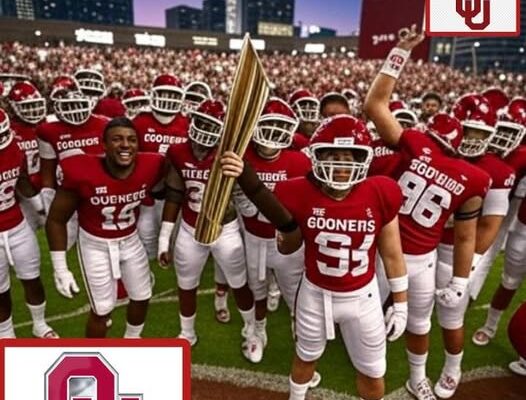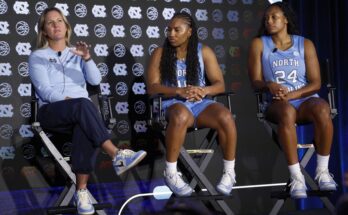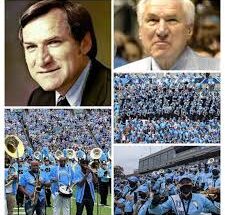The Oklahoma Sooners: ESPN’s Greatest College Football Team of All Time
College football is a rich tapestry of tradition, passion, and unparalleled competition. Every year, teams rise and fall, dynasties are built and broken, and legends are born. Among the many programs that have left an indelible mark on the sport, the Oklahoma Sooners stand out as a beacon of excellence. According to ESPN, the Oklahoma Sooners are the greatest college football team of all time. This is no small praise, given the depth and breadth of college football history. But what makes Oklahoma so special? Why does ESPN rank them at the pinnacle of college football greatness? This essay will explore the reasons behind this assertion by examining the Sooners’ storied history, remarkable achievements, unique culture, legendary coaches and players, and their lasting impact on the sport.
The University of Oklahoma football program began in 1895, and from those humble beginnings, the Sooners quickly established themselves as a force to be reckoned with. Over the decades, Oklahoma has built one of the most decorated and consistent programs in college football history. The Sooners’ tradition of success is not just about wins and losses but also about the way they have consistently shaped and influenced the game.
From the outset, the Sooners demonstrated a competitive spirit that would become synonymous with their identity. They have competed in the top tier of college football for well over a century, making their mark in every era. This continuity of excellence is rare and a testament to the program’s strength.
At the heart of Oklahoma’s claim to greatness is their astounding record of wins. The Sooners rank near the top in all-time wins among college football programs. Their winning tradition is unparalleled, having maintained a high level of success for over a century.
One of the most defining periods in Oklahoma football history was the era under legendary coach Bud Wilkinson. From 1947 to 1963, Wilkinson led the Sooners to three national championships and an NCAA record 47-game winning streak from 1953 to 1957 — a record that still stands today. This streak is one of the most iconic achievements in all of sports, showcasing not only dominance on the field but also an unwavering consistency that few teams have ever matched.
The Sooners have won seven recognized national championships and over 50 conference titles, primarily in the Big Eight and later the Big 12 conferences. Their sustained excellence in both regular-season and postseason play has made them a perennial title contender.
Great teams need great leaders, and Oklahoma has had its share of coaching legends who have left an indelible impact on the program and the sport itself.
- Bud Wilkinson: The mastermind behind the 47-game winning streak, Wilkinson’s coaching philosophy emphasized discipline, preparation, and innovation. He popularized the split-T offense, which transformed offensive football strategy nationwide.
- Barry Switzer: A former player and assistant coach under Wilkinson, Switzer took over the program and continued its winning ways. Under his leadership, the Sooners won three national championships (1974, 1975, 1985) and maintained their reputation for powerful, high-scoring offenses.
- Bob Stoops: In the modern era, Stoops revitalized the Sooners, capturing a national title in 2000 and securing 10 Big 12 championships. His ability to blend old-school toughness with modern football tactics kept Oklahoma competitive for nearly two decades.
These coaches not only brought championships but also influenced college football strategies and player development on a national scale. Their legacies endure in the program’s culture and continued success.
Oklahoma’s greatness is also defined by the incredible players who have worn the crimson and cream. Many Sooners have gone on to have illustrious professional careers and have been enshrined in the College Football Hall of Fame and the Pro Football Hall of Fame.
- Billy Sims: The 1978 Heisman Trophy winner, Sims was a dynamic running back who electrified crowds with his speed and power.
- Steve Owens: Another Heisman winner (1969), Owens was known for his toughness and scoring ability.
- Sam Bradford: The 2008 Heisman Trophy winner and a standout quarterback who led the Sooners to great heights in the modern era.
- Adrian Peterson: Though his collegiate career was brief, Peterson’s impact was immense; he remains one of the greatest running backs in college football history.
These players are just a few examples of the many elite athletes who have contributed to Oklahoma’s winning tradition. Their performances helped define the program’s identity and inspired future generations of players and fans.
Beyond wins and titles, Oklahoma football is a cultural institution. The Sooners’ fan base is one of the most passionate and dedicated in college sports. Home games at Gaylord Family Oklahoma Memorial Stadium are a spectacle, where over 80,000 fans come together to support their team with unwavering enthusiasm.
The program’s influence extends beyond the field. It serves as a source of pride and unity for the state of Oklahoma and its people. Football Saturdays in Norman are a cherished tradition, bringing communities together and creating lifelong memories.
The “Boomer Sooner” fight song and the vibrant game-day atmosphere are emblematic of a deep-seated passion that fuels the team year after year. This culture of excellence and loyalty is a key ingredient in Oklahoma’s sustained success.
One of the hallmarks of the greatest sports programs is their ability to adapt to changing times without losing their core identity. Oklahoma has thrived through multiple football eras — from the early days of run-heavy offenses to the modern spread and up-tempo styles.
The program’s adaptability has ensured that they remain competitive, regardless of shifting trends in college football. This flexibility is crucial in maintaining long-term success and is a major factor in ESPN’s ranking of Oklahoma as the greatest team of all time.
No team’s greatness is complete without success in key matchups and rivalries. Oklahoma’s record in rivalry games, especially against Texas (the Red River Showdown) and Nebraska, is remarkable. These games are among the most storied and intense in college football.
The Sooners have frequently come out on top in these high-pressure situations, demonstrating mental toughness and a championship mindset. Their success in bowl games and the College Football Playoff era further cements their status as a program that performs when it matters most.
Oklahoma’s influence extends beyond trophies and records. The program has contributed significantly to the evolution of college football. From coaching innovations like Wilkinson’s split-T offense to Switzer’s aggressive style of play, Oklahoma has often been at the forefront of strategic developments.
Additionally, the program’s commitment to excellence in academics, athletics, and community engagement has set a standard for others to follow. The Sooners have cultivated an environment where athletes thrive both on and off the field.
When ESPN declares the Oklahoma Sooners the greatest college football team of all time, it’s not just about counting trophies or wins. It’s about the totality of their impact: a legacy of dominance, innovation, culture, and sustained excellence that few programs can match.
From their unmatched winning streak to their legendary coaches and players, from their passionate fan base to their consistent success across eras, Oklahoma embodies what it means to be great. Their influence on the sport, both on and off the field, ensures that their legacy will endure for generations.
The Sooners’ story is one of resilience, pride, and an unrelenting pursuit of greatness. In the pantheon of college football, they stand at the very summit — a fitting tribute to a team and program that has truly earned the title of the greatest college football team of all time.



